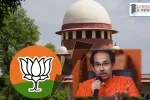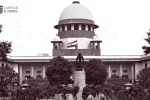Family Settlement Not Registered Under Indian Registration Act, 1908 Cannot Be Considered for Division of Properties: Punjab and Haryana High Court

In a significant ruling, the Punjab and Haryana High Court has held that an unregistered family settlement cannot be taken into account for the division of properties. The judgment in the case of Om Singh & Anr. V. Sham Singh & Anr., delivered by Hon’ble Mrs. Justice Alka Sarin, revolved around a dispute over family property in a joint Hindu family setting.
Legal Point of Judgement:
The key legal issue in this case was whether an unregistered family settlement, dated 10.10.2011, could be enforced for dividing family properties among the members of a joint Hindu family. The High Court emphasized the importance of registration under Section 17 of the Indian Registration Act, 1908, for family settlements that involve property rights.
Facts and Issues of the Case:
The dispute involved two parties claiming ownership and possession over certain family properties. The respondent-plaintiff filed a suit for declaration and permanent injunction, asserting ownership based on the unregistered family settlement. The appellant-defendants challenged the validity of this settlement, questioning its enforceability.
Court’s Assessment:
Validity of Unregistered Family Settlement: The High Court noted that the family settlement required compulsory registration under the Indian Registration Act, 1908. Since it was unregistered, the settlement couldn’t be considered for property division, and by implication, the properties remained joint.
Protection of Admitted Possession: The Court upheld the decision to protect the respondent-plaintiff’s possession of certain properties. This was justified as the appellant-defendants admitted the respondent-plaintiff’s possession over these properties.
No Exclusive Possession Established: The appellants failed to prove their exclusive possession over the disputed properties. The Court clarified that for granting injunction, it primarily concerns itself with possession.
Conclusion and Decision:
The High Court dismissed the second appeal, finding no merit in the appellant’s arguments. No substantial question of law was determined to arise from the case, leading to the upholding of the lower courts’ decisions.
Date of Decision: 01.04.2024
Om Singh & Anr. V. Sham Singh & Anr.






